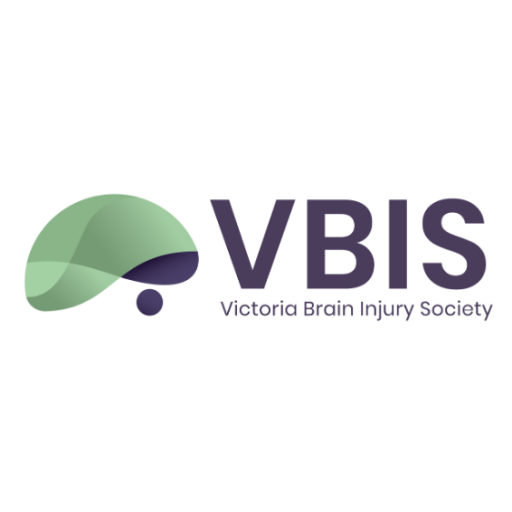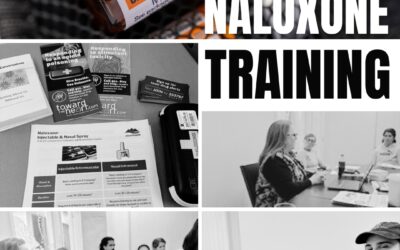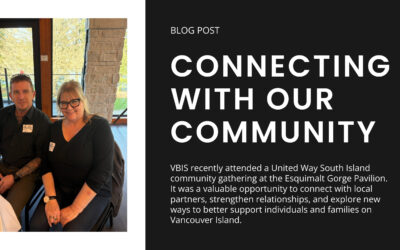By Adam Scott
Navigating Life After a Brain Injury: Resources, Support & Recovery in Victoria BC
A brain injury can change life in an instant, not only for the survivor, but for their families, friends, and support network as well. The road to recovery can feel overwhelming, especially in the early days after injury when symptoms are unpredictable and life feels unfamiliar. However, you are not alone.
In Victoria, BC, there are dedicated resources, programs, and community support designed to help people rebuild their lives after a brain injury. Whether you’re dealing with post-concussion challenges, supporting a loved one, or navigating long-term recovery, this guide will walk you through key tools and services available to help you move forward.
Understanding Brain Injury
Brain injuries come in many forms, and no two recovery journeys are the same. Whether caused by a sudden accident or a medical condition, brain injuries can impact how you think, feel, and function day-to-day. Understanding what brain injury is, is the first step toward finding the right care and support.
What is an Acquired Brain Injury (ABI)?
An Acquired Brain Injury (ABI) refers to any injury to the brain that occurs after birth. ABI can be classified into two main categories:
- Traumatic Brain Injury (TBI): caused by external forces, like falls, vehicle accidents, sports injuries, or assaults.
- Non-Traumatic or Medical ABI: caused by internal factors like strokes, brain tumors, oxygen deprivation, infections, or medical complications.
Both types can result in life-altering changes that require specialized care and rehabilitation.
Common Causes of Brain Injury
Brain injuries can happen in everyday life. Some of the most common causes include:
- Falls – especially among young children and older adults
- Motor vehicle collisions
- Sports and recreational accidents
- Workplace injuries
- Assaults
- Medical events such as strokes, aneurysms, or cardiac arrest
Recognizing the cause of the injury can help healthcare providers determine the best treatment path.
Physical, Cognitive, and Emotional Symptoms
Brain injuries can cause a wide range of symptoms, which may appear immediately or develop over time. Common symptoms include:
- Physical: headaches, dizziness, fatigue, balance problems, sensory sensitivity
- Cognitive: memory issues, difficulty concentrating, slower processing speeds
- Emotional and Behavioural: mood swings, irritability, depression, anxiety
Every survivor experiences these symptoms differently. Some may recover quickly, while others may need long-term support to manage ongoing challenges.
Immediate Steps After a Brain Injury
The first days and weeks following a brain injury are often confusing and stressful. Knowing the right steps to take can make a big difference in both safety and recovery. Whether you’re a survivor or a caregiver, it’s crucial to act early and seek out proper support.
Getting a Diagnosis
The first step after a suspected brain injury is to get a proper medical assessment. This usually starts with a visit to the emergency room or a family doctor. Depending on the injury, you may need imaging tests like a CT scan or MRI to rule out serious complications. Early diagnosis helps set the foundation for monitoring symptoms and accessing specialized care if needed.
Connecting with Local Medical Services
In Victoria, there are several medical services to support brain injury recovery. Local hospitals, walk-in clinics, and family physicians can provide initial care and referrals. Specialists like neurologists, occupational therapists, and physiotherapists play a key role in creating treatment plans for each individual. Early connection with healthcare services ensures you’re not navigating the process alone.
When to Seek Ongoing Rehabilitation
If symptoms persist beyond the first few weeks (such as ongoing headaches, memory problems, or emotional changes) it’s important to consider rehabilitation. Ongoing rehab can include physiotherapy, speech therapy, vestibular training, or mental health counseling. Programs like those offered at the Victoria Brain Injury Society provide tailored support for long-term recovery while also building a sense of community.
Support Services Available in Victoria
Recovering from a brain injury isn’t something you have to do alone. In Victoria, a range of support services are available to help survivors navigate life after injury. From immediate drop-in assistance to long-term case management, these programs offer personalized help for every stage of recovery.
VBIS Programming Overview
- Drop-in services
Our drop-in programs provide a welcoming space where survivors can ask questions, access information, and receive immediate support without an appointment. It’s a first step for many in reconnecting with community resources.
- Peer support
Peer support is one of our drop in programs that connects survivors with others who have experienced brain injury. Sharing stories, challenges, and successes in a supportive environment can ease feelings of isolation and create a better sense of community
- Case management
VBIS case managers work one-on-one with individuals to develop personalized plans, coordinate care, and help access medical, legal, and social services. This individualized approach helps survivors so that they don’t have to navigate recovery alone.
- Community integration
Rebuilding confidence and reintegrating into the community is a key part of long-term healing. VBIS offers workshops, social activities, and skill-building sessions to help survivors gain independence and reconnect with their community.
Coping Tools & Practical Support
Living with a brain injury often means adjusting how you manage everyday tasks. Fortunately, there are practical strategies and resources that can make life easier and more manageable after an injury.
Memory Aids, Apps, and Tools
Memory difficulties are one of the most common challenges after brain injury, but simple tools can help:
- Planners and notebooks for writing down tasks and appointments
- Reminder apps like Google Keep or Todoist to prompt you throughout the day
- Timers and alarms to keep track of time and reduce forgetfulness
- Voice assistants like Google Assistant or Siri for hands-free reminders
Managing Fatigue and Sensory Overload
Many survivors experience overwhelming fatigue as well as sensitivity to light, sound, or crowds. Helpful strategies include:
- Pacing activities with built-in rest breaks
- Limiting screen time or using blue light filters
- Using earplugs or sunglasses in overstimulating environments
- Listening to your body’s signals to avoid big “crashes” in energy
Legal, Financial & Housing Support Options
Brain injury can create challenges beyond health, affecting employment, finances, and living situations. In Victoria, you can access:
- Legal advocacy services through organizations like the Together Against Poverty Society
- Disability benefits guidance from Service BC and federal programs
- Affordable housing options through BC Housing
- Support navigating insurance claims via case management at VBIS
Long-Term Recovery & Quality of Life
Brain injury recovery doesn’t end after the first few months. It’s often a long-term process of adjustment, learning, and rebuilding. With the right support, many survivors go on to live fulfilling, active lives. The focus shifts from just “getting better” to improving overall quality of life.
Returning to Work or School
Getting back into work or school after a brain injury can feel daunting, but with gradual steps and accommodations, many people successfully transition back. Strategies include:
- Part-time returns or reduced schedules
- Modified duties to account for cognitive or physical limitations
- Academic accommodations like extra time on assignments or reduced course loads.
Social Reconnection & Reducing Isolation
Isolation is common after a brain injury, especially when energy levels are low or friends don’t fully understand the challenges. Rebuilding a social life takes time, but support groups and community activities can help survivors reconnect in social settings.
Living with Hidden Disabilities
Because brain injury symptoms aren’t always visible, many survivors face misunderstandings from employers, peers, or even family members. This “invisibility” can lead to frustration. By learning to advocate for one’s self, educating others, and connecting with brain injury organizations like VBIS, survivors can build environments that are more understanding and accommodating.
FAQ:
- What’s the difference between traumatic and acquired brain injury?
A traumatic brain injury (TBI) is caused by an external force (like a fall or accident), while an acquired brain injury (ABI) includes both traumatic injuries and non-traumatic causes, such as stroke, infection, or lack of oxygen.
- How do I access services at VBIS?
You can contact VBIS directly! No doctor’s referral is required. Drop-in services, peer support, and programs are available to anyone living with the effects of brain injury in Greater Victoria.
- Can I refer someone to VBIS?
Yes! Friends, family members, caregivers, and healthcare providers are welcome to refer someone by contacting VBIS. Survivors can also self-refer.
- Is there a waitlist for support groups?
Some VBIS programs, like one-on-one case management, may have short waitlists. Drop-in and many peer support groups are open-access and you can attend without a long wait.



